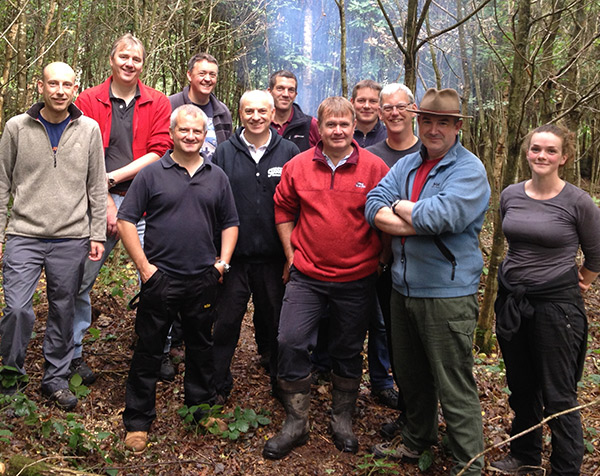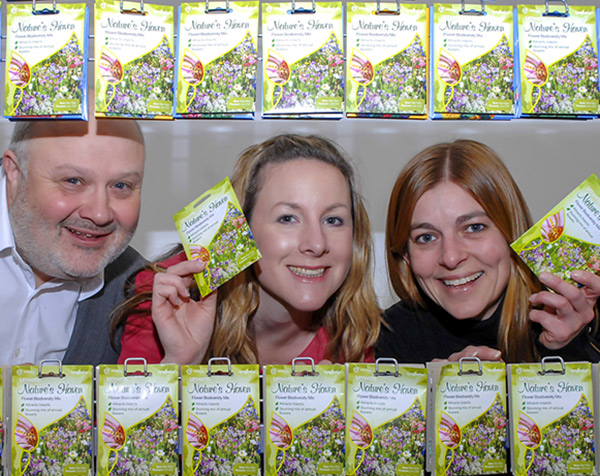NEWS – section 1
Charities warned on complacency about public trust
Research from New Philanthropy Capital has revealed that a quarter of the public say their views towards charities have become more negative in the last three years, compared with a third who are now more positive. All this is at a time of high profile negative press coverage about the charity sector. Consequently NPC warns charities not to be complacent and to find ways to address concerns held by the public.
"Mind the Gap", based on polling conducted on behalf of NPC by Ipsos MORI, was undertaken to explore whether the recent ongoing attacks on charities from politicians and the media on issues including lobbying and excessive levels of CEO pay, coupled with coverage of the Cup Trust and Comic Relief’s ethical investments, had adversely affected the public’s attitude to the sector.
The top five concerns were that charities spend too much on executive salaries (42%), are not transparent enough about how they are spending their money (36%), spend too much abroad (29%), put pressure on people to donate (29%) and spend too much on running costs (26%).
Three fifths of respondents (58%) thought that charity CEOs should earn less than an MP, with 16% thinking that CEOs should not be paid at all. However, only around one in ten (11%) were unhappy about spending on employees’ salaries suggesting that the public are mainly concerned with pay at the higher end.
The research also revealed an important gap between what the public think charities should be doing compared to what they think they actually do. Over half thought that charities should be helping communities but 35% think they spend their time doing this.
Some 48% say they pay attention to evidence that a charity is having an impact when making a donation, although 50% pay little attention or none at all. In fact, around one in ten people (9%) say that they pay extremely close attention.
New Philanthropy Capital believes that one of the reasons for these findings could be that the public do not really understand what charities - or their leaders - actually do.
NPC chief executive Dan Corry says that charities have a role to play in bridging this gap in perception with their own supporters by explaining their role and why they take the decisions that they do. "For example, charity boards should be more vocal about the principles on which they have based a CEO’s pay, a perspective that was largely missing from the recent debate. Indeed all of those who work for charities in the UK have a role to play in building the reputation of the sector and countering misperceptions."
NPC also argues that the sector needs to come up with a joint strategy to talk to the public about its changing role and to respond more comprehensively to criticism. "Not all charities are perfect and the sector must be open about this, but many of the comments made about the sector are unfair and misleading. If the sector can work together, it will be in a stronger position to withstand any erosion of trust it might yet suffer should the attacks by the press and MPs continue," says Corry.
Performance and retention issues for charity employers
Nearly half (46%) of HR managers in the charity sector predict an increase in staff numbers in the next two to three years, according to annual research ("The Management Agenda 2014") by leadership institute Roffey Park. This nearly keeps pace with private sector recruitment intentions (62% plan to increase) and is way ahead of public sector hiring plans (just 15% growing the workforce).
The picture is not entirely rosy. 16% of charity HR professionals plan to oversee a reduction in staff, however this compares well with the public sector, where the majority of managers forecast staff decline (61%).
For a sector that might be expected to excel in terms of supportive working conditions there are some worrying findings, says Roffrey Park, although charity staff get a better deal in this respect than those in the private sector.
Nearly one third of managers (32%) in the charity sector regarded their organisation’s culture as "high challenge, low support" compared to 48% in the private sector and 52% in public sector. Whilst that sounds relatively positive, twice as many managers in the sector rated their charity’s culture as "low challenge, high support" when compared with managers in other sectors.
Comments Andy Smith, director of research at Roffey Park: “The balance between support and challenge seems out of kilter in the charity sector. Managers look for stretch and ambition as well as support. With almost half of managers who are highly supported yet provided with little challenge saying that they intend to leave their organisation in the near future, the survey findings hint at the need to address some real performance and retention issues.
"The need to provide appropriately challenging and developmental work is critical to complement the often tight resources available for formal development in the charity sector, with only a quarter (24%) of charity managers planning to invest more in their employees in 2014.”
On a positive note, managers in the charity sector were the most likely to display the stated values of their organisations – whilst 28% of charity managers were thought not to espouse the values of their organisation, this figure rose to 51% in the public sector and 40% in UK organisations overall.
Decision could make schools and academies vulnerable
A “dramatic” decision made by the Supreme Court could see schools, colleges and local authorities being held liable for abuse or negligence by independent contractors they have hired, according to law firm Blake Lapthorn.
Institutions have often previously avoided being subject to compensation claims in cases of abuse or injury by third party carers or service providers because they are able to argue that they had delegated their duty of care. But Blake Lapthorn solicitor Malcolm Johnson says a recent case involving a local education authority could open them up to negligence claims even where an independent carer, contractor or third party is involved.
The case involved a girl, then 10, who suffered serious injuries during a swimming lesson at a pool in Basildon, Essex. She attended the lesson with her school, but the sessions had been provided by others contracted by Essex County Council in its role as the education authority.
A court had previously ruled that the education authority could not be liable for damages because it had contracted out the service. After an appeal against the decision, the Supreme Court has now handed down judgment and made a landmark ruling that the local authority could be held liable if it were found that it breached its duty of care. The ruling paves the way for the appellant, now in her 20s, to sue Essex County Council for damages.
Malcolm says the ruling could have far-reaching implications for educational institutions which use independent contractors or independent carers to look after children or adults. He observes: “This is a truly dramatic development in the law for local authorities. All educational institutions, including academies with independent staff, are now vulnerable. This judgment reflects the fact that public bodies now outsource so much work.
“Previously a person injured by the negligence of an independent contractor, who was hired out by a school or academy to look after children, might well have no compensation claim. This decision may be indicative of the direction in which the courts are moving and could have significant implications for charities, schools, churches and diocesan authorities which provide care and support for children and adults.”
In his judgment in the Essex County Council case, one of the law lords, Lord Sumption, said: "In my opinion...the education authority assumed a duty to ensure that the appellant's swimming lessons were carefully conducted and supervised, by whomever they might get to perform these functions.<
“The appellant was entrusted to the school for certain essential purposes, which included teaching and supervision. The swimming lessons were an integral part of the school's teaching function.”
Support for card donations to charity
Health and fitness group David Lloyd Leisure has rolled out Pennies, the electronic charity box, to raise money for Sport Relief 2014, which the group is supporting as Official Fitness Partner. Members at David Lloyd Clubs who pay by card in the DLicious cafebars now have the choice to round up their bill to the nearest pound for charity, while those using the clubs’ Amida Spas can choose to give a set donation of 25p.
Card holders will be asked discreetly via the Chip & PIN terminal whether they would like to make a donation to charity, with 95% going to Sport Relief and the remaining 5% to Pennies, itself a registered charity which distributes funds received in this way.
Alison Hutchinson, chief executive of Pennies, says: “It is fantastic to see the roll-out of Pennies to the majority of David Lloyd Leisure clubs. We hope that members enjoying a meal, drink or spa experience will choose to make a donation that will go to a great cause. Card use is on the rise and we want to harness this growing power with Pennies, which enables consumers to make a real difference at the touch of a button in the same way that they’ve traditionally dropped coins into a charity collecting tin.”
New beer brand profits for prostate cancer charity
All profits from Aurelio, an artisan craft beer created by the newly formed Two Fingers Brewing Co., founded by seven friends who work for advertising agency Karmarama, are to be donated to Prostate Cancer UK. It launches exclusively through 200 Tesco stores and at least 10p from every bottle will go to the charity.
Aurelio is brewed and bottled at cost by Sussex craft brewery Hepworth & Co. The golden beer has the refreshment of a lager and the fine flavours of an ale, for all beer lovers to share and enjoy, and is brewed with 100% British ingredients, carefully blended for a complex aroma and perky citrus flavours that spring to the palate.
Matt Sadler, co-founder of Two Fingers Brewing Co., says: “We’re giving men a beer they can be proud of. Aurelio is a top quality, great tasting brew that makes it a pleasure to join the fight against the most common cancer in men. This is one small sip for man, one giant gulp for mankind.”
Andy Hepworth, founder and head brewer at Hepworths, says: “We were delighted to be chosen to brew Aurelio, and very proud of the final result. With every bottle sold helping to fight prostate cancer, we’re hoping that Aurelio becomes a best-seller.”
Tesco ale buyer Chiara Nesbitt comments: “Aurelio ale has been created for a really great cause which we are keen to support. Now we want to help turn Aurelio into a world-beater and believe this first class beer will do well.”
Golden ales were first developed by British brewers in the 1980s and were specifically designed to win over younger drinkers who favoured lighter, thirst-quenching beer such as lager. Aurelio, which is 4.8% ABV, means golden in Latin. It will cost £1.89 a bottle.
The men at the heart of Two Fingers Brewing Co. all continue to work in their day jobs and are grateful to their employers for allowing them time to spend time on their passion for beer

Team building for corporate volunteers
IT services company Atos sent 13 of its business technologists from offices in London, Winnersh, Blackpool, Leeds and Cardiff to help Natural England in the Wyre Forest, North Worcestershire for a day of volunteering and team building.
The volunteers spent the day coppicing trees to help Natural England in its mission to ensure that the site is looked after and improved with the ultimate goal to bring some structure back to the woodland. Wyre Forest is part of one of the largest ancient lowland coppice oak woodlands in England.
Alice Briggs, Natural England’s reserve warden for Wyre Forest, says: “The day with Atos was a great opportunity for their team to get out and about in the forest, do some old fashioned practical work and ultimately provide them with a different take on a team building day. The task we set out was thinning a coppice coup and the team was enthusiastic and really keen to get stuck in. They clearly relished working outdoors and we coordinated the day to give them the opportunity to get away from their usual routine.”
Dave Tilbury of Atos says: “This was a genuine team building day - no need for games or motivational/insightful speeches, just a practical task and a sense of enjoyment between everybody.”

commemoration activities.
Partnership enables charity to sow seeds of hope
The British Polio Fellowship is benefiting from a joint project with agri-business Syngenta and Westland Horticulture which has already involved supplying 10,000 packets of seeds to members of the charity via its magazine as part of events to mark its 75th anniversary, by using flowers to remember those still living with polio and post polio syndrome (PPS). Other packets, marked with the charity’s logo and "Living with Polio and PPS", will also be distributed to the public in return for donations as the charity tours the UK this year.
“The charity has long wished to be able to issue seeds or flowers to commemorate Polio and PPS with members and the wider public, and thanks to this valuable sponsorship from Syngenta and Westland, we can make this dream a reality,” says Ted Hill, CEO of the British Polio Fellowship. “The seeds provide a selection of flower varieties to attract beneficial insects whilst at the same time creating a simply beautiful display of colour. They will flower right through from June to October, providing a fitting tribute to Polio and PPS.”
Louise Billingham, brand manager for Westland Horticulture. “Flowers are the traditional form of remembrance and commemoration around the world and we are proud to be able to help commemorate 75 years of effort to combat polio and support people with PPS here in the UK.”
Investment in education charity
Impetus–The Private Equity Foundation has made a £75,000 investment in SAPERE (Society for the Advancement of Philosophical Enquiry and Reflection in Education), which trains teachers to improve educational outcomes in the UK by developing children’s thinking skills through engagement in philosophy, using its Philosophy for Children programme.
This is delivered through weekly sessions in schools, facilitated by the teacher, in which children discuss an interesting philosophical question that the children themselves develop in response to stimulus material, for example, “What’s the difference between telling a lie and keeping a secret?” or “When did you start to think?”.
The approach focuses on children’s abilities and dispositions to question, reason, construct arguments and collaborate with others. Research has shown that by acquiring and learning to apply thinking skills in this way, both cognition and self-confidence can improve, leading to an improvement in academic attainment. SAPERE has trained over 10,000 teachers in 2,500 schools to use Philosophy for Children with their pupils and throughout the curriculum.
Alongside core funding, Impetus-PEF will support SAPERE to refine the focus of its work and to maximise the impact on pupils from low income backgrounds, enhancing the effectiveness of the programme in UK schools.
Recycling funds training for volunteers
A five year partnership between the Recycling Factory and the RNLI has raised a total of £600,000 for the charity through recycling inkjet cartridges, toner cartridges, mobile phones and electronic gadgets. At the end of 2013 the RNLI had achieved its fundraising target for that year of £100,000. Most recently the arrangement has helped to fund the training of two lifeboat volunteers (at a cost of £1,255 each) across all the charity's 237 stations for a whole year.
The Recycling Factory operates a UK wide recycling scheme enabling RNLI supporters to send in their empty cartridges using freepost envelopes or, for larger volumes, free recycling boxes. 100% of each item’s value is donated directly to the charity. The service is completely free of charge.
IT upgrade for charity's retail operations
Help for Heroes Trading has selected Eurostop's e-pos and e-rmis retail management solutions to support a strategy of growth within both its e-commerce business and its growing portfolio of stores. The charity's company sells new, branded clothing and accessories. The systems are already in place in its stores in St David’s, Cardiff, Lakeside and Meadowhall shopping centres and will be rolled out to all future stores, supporting the company’s goal of opening seven new shops this year.
Helen Beebe, managing director of Help for Heroes Trading, says; “The trading company aims to support the activities of the charity, therefore it is important that we have robust systems to ensure that we are able to run as efficiently as possible. As our business grows, a retail management and EPOS system was crucial.
The new Eurostop system will give the company improved visibility of sales and stock information, and the e-Cubes reporting module will provide better business information enabling accurate planning and trading decisions.

Helicopter purchased with public donations
Midlands Air Ambulance has made a strategic decision to purchase outright the service’s first helicopter, which will be based at the RAF Cosford airbase in Shropshire.
As the UK’s largest and busiest air ambulance service, Midlands Air Ambulance currently leases three EC135 helicopters from Bond Air Services, which are situated at RAF Cosford in Shropshire, Tatenhill in Staffordshire and Strensham in Worcestershire, but will be replacing the RAF Cosford aircraft with a brand new EC135T2e helicopter.
Brendan Connor, chairman of Midlands Air Ambulance, says: “As part of our objective to reinvest charitable donations into helicopter emergency medical service operations and extending pre-hospital patient care, we made the decision to purchase our own helicopter.
“The new £4.5 million helicopter has been entirely funded through public donations, demonstrating the incredible support our vital life saving service receives from local Midlands’ communities and businesses, which we are extremely grateful for.”
As the new aircraft is being equipped with the capability for night flying, Midlands Air Ambulance is exploring the viability and operational requirements of flying in the hours of darkness. Because the proposed extended service will cost more to operate, the charity has launched a public appeal to help raise the extra funds required
IN BRIEF
YOUTH CHARITIES DONATION DOUBLED. Pharmaceutical company Sanofi Diabetes has this year doubled its donation to Diabetes UK to £20,000, which will go towards supporting the charity's Care Events for children, young people and families living with type 1 diabetes.
IN-STORE DEFIBRILLATORS. Under a new partnership between the British Heart Foundation and Asda, the company will become the UK's first large retailer to commit to have CPR trained staff and a public access defibrillator in every store. The rollout has started in London and will be completed nationwide by the end of the year.
Asda's head of community, Dawn Clements, says: "We're really proud of our investment of over £500,000 in providing life-saving defibrillators for all of the communities we operate in. This could significantly cut the amount of time a cardiac arrest sufferer has to wait for life-saving CPR and defibrillation, giving them the best possible chance of survival."
TRAVEL RISK MANAGEMENT. According to a survey by Key Travel, there has been a small but noticeable decline in the proportion of charity travellers being provided with destination and risk management briefings or training before they travel - 51% this year compared to 59% last year. Worryingly, says Key Travel, 37% say they are not provided with risk management training before they travel, and 11% do not know.
EMPLOYMENT SUPPORT. Ex-servicemen charity Walking With The Wounded has entered into a scheme with the Regular Forces Employment Association and Alabare, a charity providing housing related support, to tackle the challenges of unemployment for wounded veterans when entering civilian life. A specialist employment consultant will work exclusively within Alabare's Gloucestershire and Bristol homes for 24 months.
APPOINTMENTS. Impetus-The Private Equity Foundation has appointed Richard Lackmann as chief financial officer; he was previously head of the finance function at a number of charities. The Women's Sport and Fitness Foundation has appointed Sally Hancock, formerly director of Olympic and Paralympic marketing at Lloyds Banking Group, as its chair of trustees, replacing Hugh Chambers (formerly chief commercial officer of the British Olympic Association) who stands down after five years.











